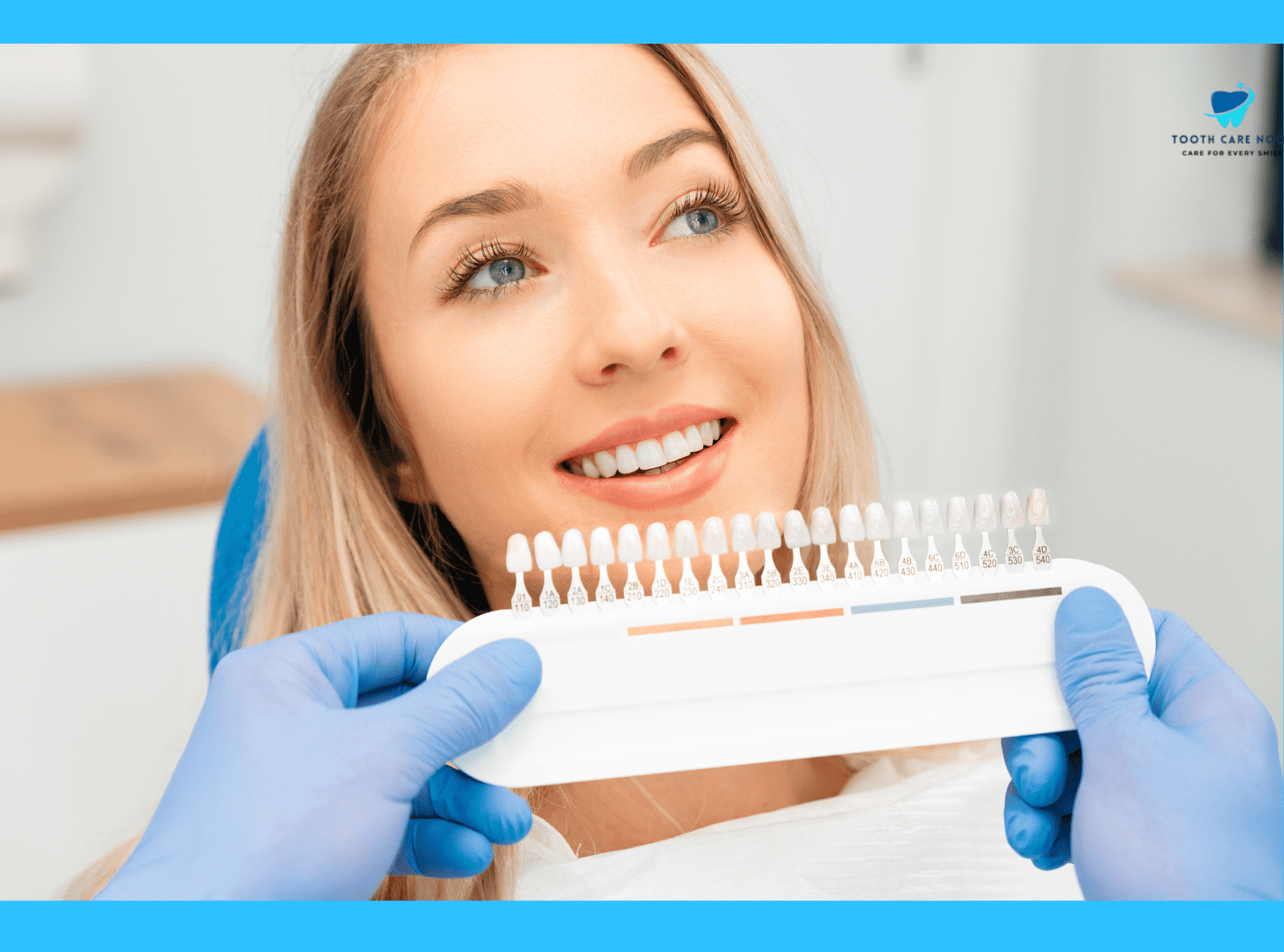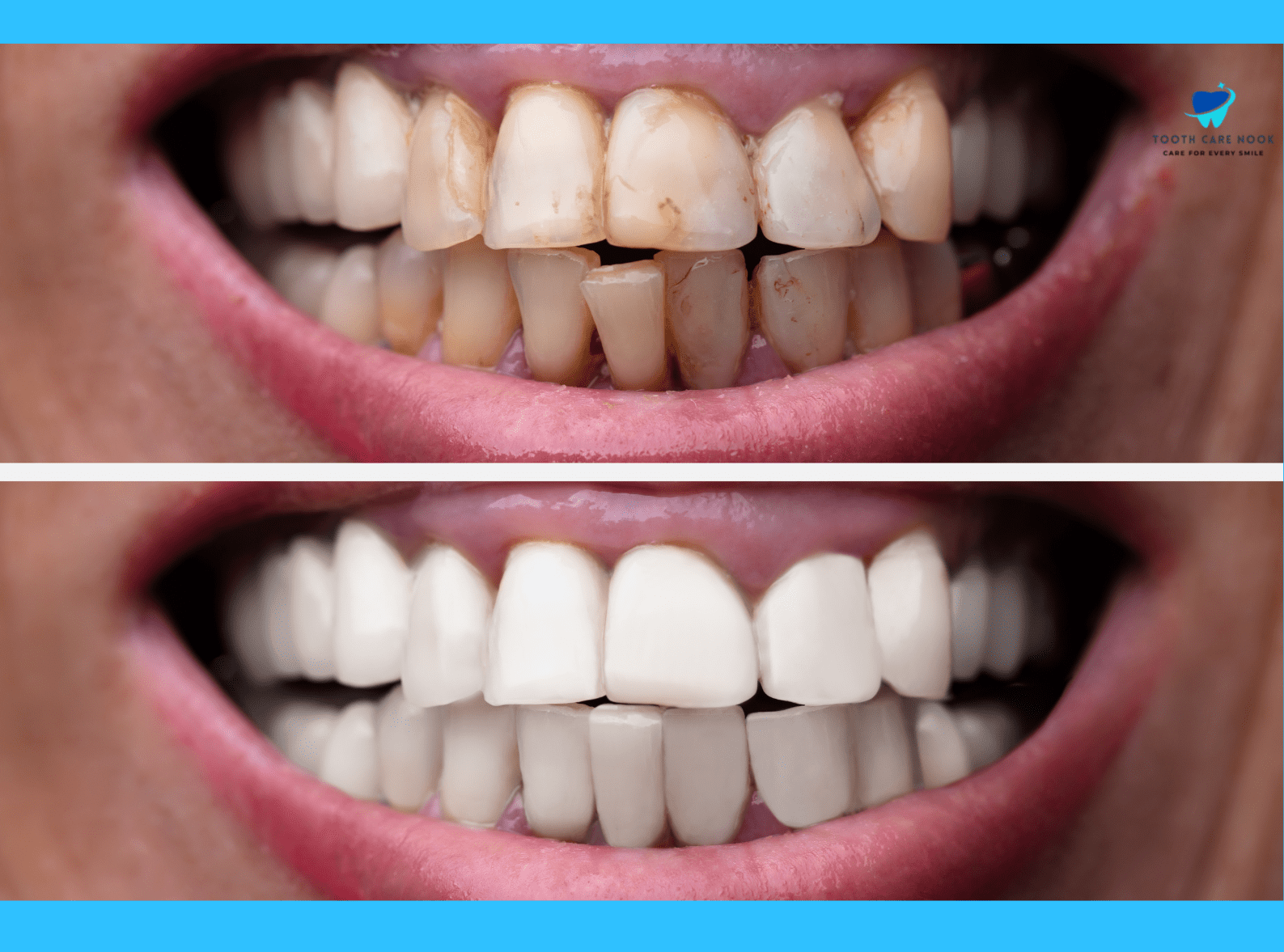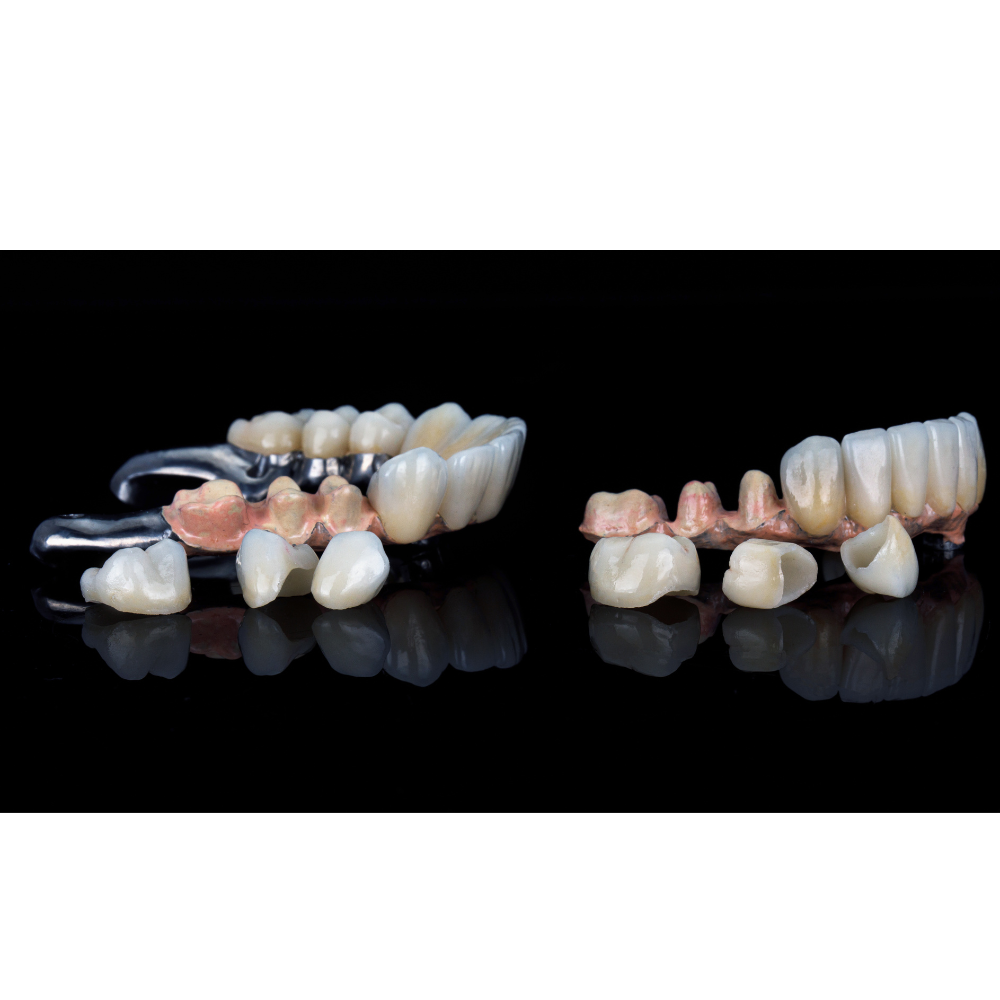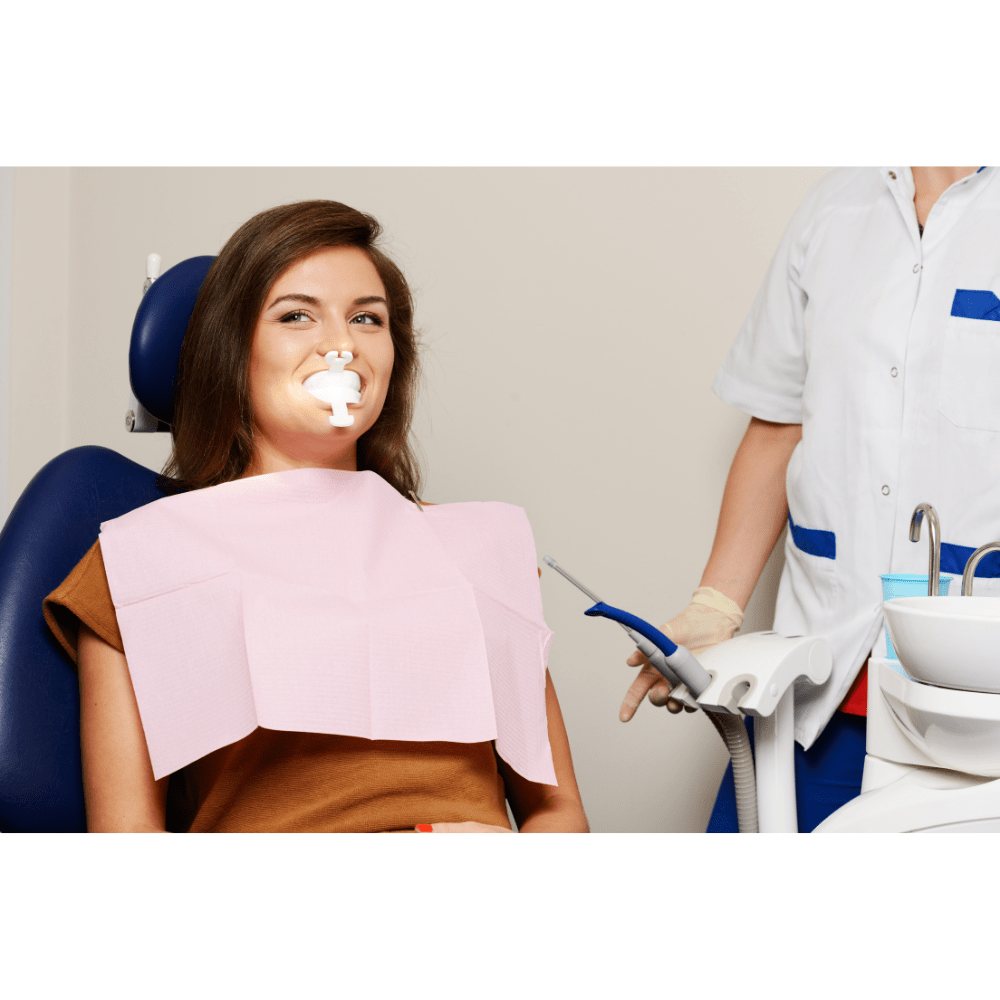Veneer Teeth Shaving – Is It Needed?, Cost, And All
Your confidence and overall appearance can be significantly improved by improving your smile. One popular method for achieving a perfect smile is through dental veneers. This cosmetic dental procedure is quite popular in its ability to transform teeth, giving them a natural and aesthetically pleasing look.
When considering veneers, you should know all aspects of the process, including the necessity and cost of veneer shaving. Maybe you’re wondering if this step is necessary and what it involves. In this article, we’ll talk about veneer teeth shaving, its side effects, and benefits. We will also discuss veneers without teeth shaving. Let’s start with the veneer-shaving process.
Veneers Shaving Process
1. Tooth Preparation or Shaving:
A dentist will first evaluate your teeth and discuss your aesthetic goals. X-rays or dental impressions might be taken to plan the veneer placement accurately. The dentist will start by numbing the area with a local anesthetic to ensure you are comfortable during the procedure.
A small amount of enamel is removed from the tooth’s front surface. This is necessary to create space for the veneer and ensure it fits properly. The amount of enamel removed is generally very minimal and proportional to the thickness of the veneer.
2. Impressions and Temporary Veneers:
Once the teeth are prepared, the dentist will take an impression or mold of your teeth. These impressions are sent to a dental laboratory where the veneers are custom-made to fit your teeth. Temporary veneers may be placed on your teeth to protect them until the permanent veneers are ready.
3. Bonding the Veneers:
When the custom veneers are ready, the dentist will place them on your teeth to check the fit and color. After any necessary adjustments, the teeth will be cleaned, polished, and etched to ensure a strong bond. Dental cement is then applied to the veneer, and it is placed on the tooth. A special light is used to harden the cement quickly, securing the veneer in place.
4. Final Adjustments and Follow-Up:
The dentist will make any final adjustments to ensure a comfortable and accurate fit. You may need to return for a follow-up visit to ensure the veneers are settling well and there are no issues.

How Much Do They Shave Teeth For Veneers?
Dentists usually shave a thin layer of enamel usually around 0.5 mm from the tooth’s surface for porcelain veneer teeth shaving to ensure a proper fit and natural appearance. Composite veneers, on the other hand, often require less preparation compared to porcelain veneers. In some cases, they may require little to no shaving of the enamel.
Recent advancements have also led to the development of ultra-thin or ‘no-prep’ veneers, which may require minimal to no enamel removal. These veneers are particularly suitable for minor shape corrections or slightly misaligned teeth.
Do You Need Veneer Teeth Shaving?
Whether or not you need veneer teeth shaving depends on the following factors:
Tooth Condition:
If your teeth are misaligned, have gaps, or are severely discolored, veneers can improve their appearance. Shaving may be required to ensure the veneers fit properly and look natural.
Desired Aesthetic Outcome:
For a seamless and natural look, a small amount of enamel may need to be removed to accommodate the veneer’s thickness. This helps avoid a bulky appearance and ensures the veneer adheres securely.
Type of Veneers:
Traditional porcelain veneers usually require more enamel removal than ultra-thin or no-prep veneers like Lumineers. Your dentist will help determine the best type based on your specific needs and preferences.
Oral Health:
Healthy teeth and gums are essential before getting veneers. If you have decay, gum disease, or other dental issues, these will need to be addressed first.
Longevity and Maintenance:
Veneers are a long-term solution. Once enamel is removed, it doesn’t regenerate, so you need to be committed to maintaining your veneers and possibly replacing them in the future.
Consultation with a Dentist:
Professional consultation is a must. Your dentist will evaluate your teeth, discuss your goals, and explain the process. They can provide a personalized recommendation on whether veneers and the associated shaving are right for you.
Side Effects of Teeth Shaving
Tooth Sensitivity:
Shaving the enamel can lead to increased sensitivity to hot, cold, or sweet foods and beverages.
Irreversible Procedure:
Enamel does not regenerate. Once it’s shaved off, it’s permanently lost, which may require lifelong maintenance.
Potential for Damage:
Over-shaving can weaken teeth, making them more prone to chipping or damage.
Risk of Tooth Decay:
Teeth trimming or removing enamel reduces the natural protection of teeth, potentially increasing the risk of decay if proper oral hygiene isn’t maintained.
Temporary Discomfort:
Some patients may experience discomfort or pain during and after the procedure, which usually subsides within a few days.

Benefits
Aesthetic Appearance:
Shaving teeth for veneers can significantly improve the look of your smile, correcting issues like discoloration, gaps, and minor misalignments.
Improved Fit and Function:
Ensures that veneers fit properly, improving functionality and a more natural appearance.
Boost in Confidence:
A better-looking smile can increase self-esteem and confidence, positively impacting social and professional interactions.
Durability and Longevity:
Properly fitted veneers are durable and can last for many years with good care, providing a long-term cosmetic solution.
Customization:
Shaving allows for precise customization of veneers to match the shape, size, and color of your natural teeth, resulting in a more seamless look.
Can I Get Veneers Without Shaving Teeth?
Yes, you can get veneers without shaving your teeth. These are often referred to as no-prep veneers or minimal-prep veneers, with Lumineers being a popular brand. These veneers are ultra-thin and require little to no enamel removal.
Benefits of Getting Veneers with Unshaved Tooth
Preservation of Natural Tooth Structure:
No-prep veneers do not require significant enamel removal, preserving your natural tooth structure.
Reversible Procedure:
Since minimal or no shaving is involved, the process is often reversible if you decide to remove the veneers in the future.
Less Sensitivity:
With little to no enamel removal, there’s a reduced risk of tooth sensitivity.
Quick and Painless Procedure:
The process is quicker and less invasive, often completed in fewer dental visits without the need for anesthesia.
Veneers Before And After Shaved
Here are the veneers before and after shaved images, you can see the clear difference in both:

Difference Between Veneers Filed Teeth And Shaved Teeth
| Veneers on Filed Teeth | Veneers on Shaved Teeth |
| Filed teeth involve minor surface adjustments to improve fit and appearance | Shaved teeth involve removing a thin layer of enamel to accommodate the veneer |
| More natural tooth structure is preserved | Less natural tooth structure is preserved due to enamel removal |
| Generally less sensitivity and discomfort post-procedure | Higher chance of sensitivity due to enamel removal |
| Effective for minor adjustments but may not correct major imperfections | Often provides a more seamless and natural look for significant cosmetic changes |
| More reversible; less impact on natural teeth if veneers are removed | Less reversible due to permanent enamel removal |
| Maybe less durable if teeth are not adequately prepared | Often more durable due to a better fit and bond from proper preparation |
| Typically quicker and less invasive | It may require more time due to the need for precise enamel removal |
| Ideal for minor cosmetic issues and slight adjustments | Better suited for significant cosmetic improvements and corrections |
Cost Of Teeth Shaving
The cost of teeth shaving for veneers in the US typically ranges from $50 to $300 per tooth. This cost includes the preparation of the tooth surface but it does not cover the cost of the veneers themselves. The total cost can vary based on factors like the complexity of the procedure, the type of veneers used, and the geographic location of the dental practice.
What To Do If The Dentist Shaves My Teeth Down Unnecessarily?
If your dentist has shaved down your teeth unnecessarily, here’s what you should do:
Communicate with Your Dentist:
Contact the dentist immediately to discuss the issue. Ask why the procedure was performed and request a detailed explanation. This can help clarify if there was a legitimate reason or if it was an error.
Get a Second Opinion:
Visit another dentist to assess the extent of the damage and get an unbiased opinion. They can provide you with information about any potential harm done and suggest possible remedies.
Document Everything:
Keep records of your communications with the dentist, including dates, times, and the content of your conversations. Take photographs of your teeth to document the changes and any potential damage.
Consider Legal Action:
Consult with a dental malpractice attorney if you believe the procedure was done without your consent and caused harm. They can advise you on your rights and potential next steps, including taking compensation for any damage.
Address Any Pain or Sensitivity:
Discuss treatment options with your new dentist if you’re experiencing pain or sensitivity. They might suggest treatments to protect the exposed dentin or recommend restorative procedures to repair the damage.
FAQs
Is Porcelain Veneer Teeth Shaving Painful?
Porcelain veneer teeth shaving is generally not painful because the procedure is usually done under local anesthesia. Patients may experience mild discomfort or sensitivity afterward, but the process itself is well-tolerated.
What If You Don’t Like Your Veneers?
If you don’t like your veneers, you should contact your dentist to discuss your concerns. Depending on the issue, adjustments can often be made. In some cases, veneers can be replaced or removed, but this may involve additional costs.
How Long Do No Shave Veneers Last?
No-shave veneers, such as Lumineers, typically last between 10 to 20 years with proper care. Their longevity depends on factors like oral hygiene, bite forces, and regular dental check-ups.
Is Veneers Good For No Teeth?
Veneers are not suitable for individuals with no teeth. They are designed to cover and improve the appearance of existing teeth. For those with missing teeth, alternatives like dental implants or bridges are typically recommended.



